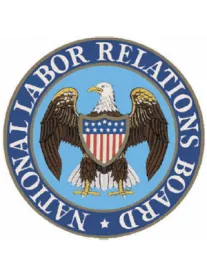Continuing its pro-union and pro-employee agenda, the National Labor Relations Board issued its long-awaited and closely watched decision in Browning-Ferris Industries of California, Inc. on August 27, 2015. By reaching this decision, the NLRB overruled its prior precedent governing the joint employer standard and made it easier for unions seeking to organize employees of a staffing agency or franchise. The decision requires the corporation using the staffing agency or franchise relationship to bargain with the union over the terms and conditions of employment of the contingent or franchise employees.
The NLRB held its prior joint employer standard was "increasingly out of step with changing economic circumstances, particularly the recent dramatic growth in contingent employment relationships." Changing the standard to account for this change will require separate legal entities to now jointly bargain and be held jointly liable if the other commits unfair labor practices regarding the employees and/or collective bargaining negotiations.
Under the new standard, the Board may find two or more statutory employers are joint employers of the same statutory employees if they "share or codetermine those matters governing the essential terms and conditions of employment." In evaluating this standard, the common law concept of control is used. As in the past, the Board will consider the various ways in which joint employers share control of the terms and conditions of employment, including assigning work and supervision, setting wages and hours, scheduling, hiring, firing, and disciplining, and determining the manner and method of work.
The NLRB will no longer assess whether a putative employer possesses authority to control the terms and conditions of employment and exercises that authority. Nor will the Board require that an employer’s control is exercised "directly and immediately." Rather, the Board found that reserved control, even if not exercised, is clearly relevant to joint employment status, and that control exercised indirectly through an intermediary, if sufficient, can establish joint employer status. The Board emphasized it has modified the legal landscape of the National Labor Relations Act, and no other federal statute. It found that this decision will "best serve the Federal policy of encouraging the practice and procedure of collective bargaining."
Employers in today’s complex economy must ensure their methods and practices comply with NLRB precedent to avoid unintended joint employer status. This decision may have sweeping effects on employers, including in the franchisor-franchisee context, regarding collective bargaining rights vis-à-vis employees and all “joint employers,” whether intended or not under the parties’ agreements and working relationships.








 />i
/>i

